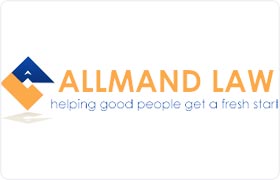Dallas Bankruptcy & Debt Lawyer, Texas, page 4
Sponsored Law Firm
-
 x
x

Click For More Info:
-
Allmand Law Firm
4849 Greenville Ave Ste 230 Dallas, TX 75206» view mapBankruptcy Helping Good People Get a Fresh Start
At Allmand Law Firm, PLLC, our goal is to help each of our clients pursue a fresh start and the second chance they need to start again.
800-828-7421
Richard D. Pullman
Commercial Leasing, Corporate, Banking & Finance, Collection
Status: In Good Standing
Jennifer A. Mitchell
Landlord-Tenant, Banking & Finance, Credit & Debt, Bankruptcy
Status: In Good Standing
Steven L. Besly
Corporate, Business Organization, Banking & Finance, Bankruptcy
Status: In Good Standing
Susan Land Finnell
Estate Administration, Estate Planning, Directors & Officers, Bankruptcy
Status: In Good Standing
Amy Reilly Sallusti
Criminal, Business Organization, Bankruptcy, Defamation & Slander
Status: In Good Standing
 Weldon Allman Dallas, TX
Weldon Allman Dallas, TX AboutAllmand Law Firm
AboutAllmand Law Firm Practice AreasExpertise
Practice AreasExpertise
